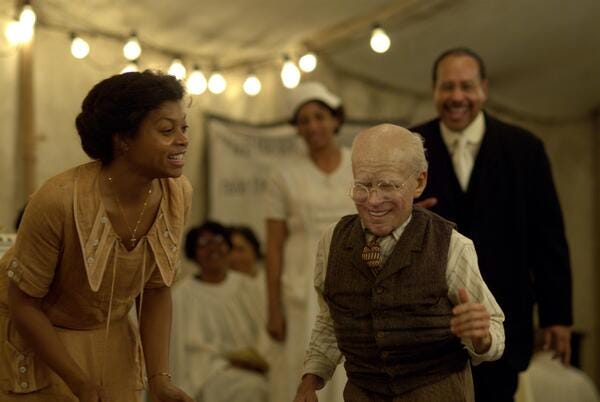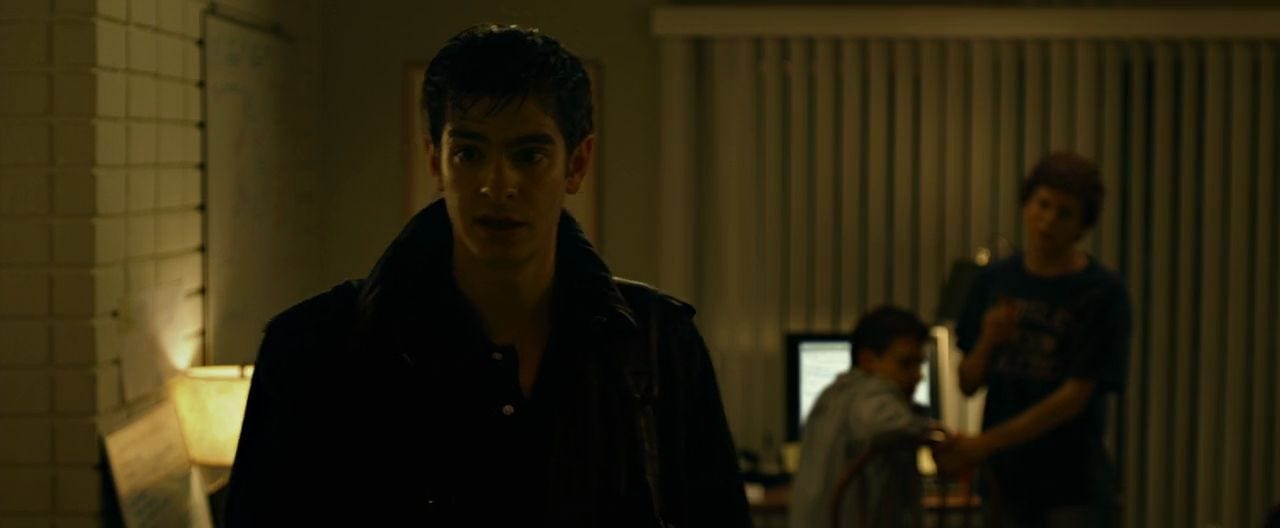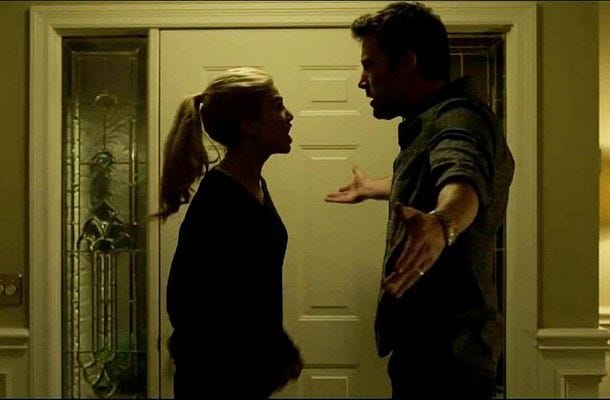David Fincher's 'The Killer': A Good Version of a Movie You've Seen Before
The director and writer of 'Se7en' re-team for a comedic thriller that's almost as entertaining as it is unoriginal.
Almost thirty years ago, director David Fincher and screenwriter Andrew Kevin Walker collaborated on a serial killer thriller called Se7en. Disturbing, bleak, and provocative, the movie rattled audiences and became a massive hit, to such a degree that even today, the phrase “WHAT’S IN THE BOX?!?!” is deeply ingrained in pop culture, as instantly recognizable as “Of all the gin joints in all the towns in all the world, she walks into mine” or “Leave the gun, take the cannoli.”
Fincher has since become one of the most respected filmmakers in the world (his other work includes Fight Club, Zodiac, and The Social Network), and Walker has reportedly done uncredited rewrites on a number of his movies. But The Killer, currently enjoying a limited theatrical run before going to Netflix on November 10, is their first officially-official collaboration since Se7en. It’s a VERY different sort of film - it’s a black comedy as much as it is a thriller - and, frankly, it’s not as inventive as its predecessor. But it’s still pretty entertaining; more so, in fact, than it has any right to be, given that it’s basically the umpteenth iteration of a movie we’ve all seen a billion times before.
Based on a French comic book written by Alexis “Matz” Nolent and illustrated by Luc Jacamon, The Killer centers around a hit man (Michael Fassbender), whose name we never learn (his various aliases are all classic sitcom characters like Felix Unger, Archie Bunker, and George Jefferson). He’s meticulous and has a strict set of rules intended to keep him employed, alive, and out of prison. Unfortunately, his latest job goes sideways, and the intended victim gets away. Bad people come looking for The Killer, someone he cares about gets hurt, and an odyssey of vengeance ensues. As I said: You’ve seen this movie before.
Candidly, I’m not even sure that Fincher and Walker do anything even remotely new, other than their ending (more on that later). I can see where, as a character, the fastidious protagonist would appeal to Fincher, who has a reputation for being the kind of perfectionist that does hundreds of takes of any given shot. Beyond that, I can’t quite fathom why he felt the need to make this film. Even Fincher’s previous foray into high concept, not-particularly-profound thrillers - 2002’s excellent Panic Room - ultimately feels far more unique and technically impressive than The Killer does. Time will tell if I’m right or not, but my guess is that The Killer will be ultimately be remembered as one of Fincher’s minor works.
Not helping, like, at ALL is the fact that Fincher has officially joined Tim Burton and Wes Anderson in the Hall of Directors Whose Films All Look Identical to a Farcical Degree. He adopted a sulfuric color scheme on The Curious Case of Benjamin Button in 2008 and went on to recycle for The Social Network, The Girl with the Dragon Tattoo, Gone Girl, and now The Killer (Mank was in black and white, or I’m sure it would have also looked like it was lit with urine). It would be kinda nice, at this point, to see Fincher switch things up a bit.
And yet, there’s no denying that The Killer is a fun watch. Some of that is due to Walker’s gallows humor, and his treatment of the material as pure noir, devoid of judgment towards or extraneous information about its lead character. Some if it is due to the cast, which in addition to Fassbender, includes Tilda Swinton, Arliss Howard, Charles Parnell, Kerry O’Malley, and Sauron himself, Sala Baker (although none of the supporting characters are in the movie for very long). Some of it is due to the score, by regular Fincher collaborators/Nine Inch Nails masterminds Trent Reznor and Atticus Finch, who seem biologically incapable of writing a lousy note. And some of it is due to the filmmaker’s prowess - the first fifteen minutes or so of the movie drags a little, but once the botched assassination occurs, Fincher and his longtime editor, Kirk Baxter, keep things moving at a clip. And elements that lesser directors would struggle to make work - like a brutal hand-to-hand combat sequence filmed almost entirely in the dark - Fincher pulls off with aplomb.
As for that ending (fret not, I won’t spoil it here): It’s not a “surprise ending,” but it is quite surprising. It makes the film feel like it’s missing a few character beats; it’s as though the entire narrative was setting you up for one conclusion but then delivers another, but not in a way that recontextualizes what came before it, or that even feels especially satisfying, for that matter. In fact, if anyone but Fincher had made this movie, I would have guessed it was a studio-mandated change based on poor test screening scores or some such bullshit. It only adds to the story’s weightlessness, and the sense that this is not one of the works by which Fincher will be remembered. The Killer doesn’t have much of a point, really. It’s cinematic cotton candy: It’s pleasing enough while you’re consuming it, but it evaporates quickly and never approaches the sublime delights of a true gourmet dessert.








